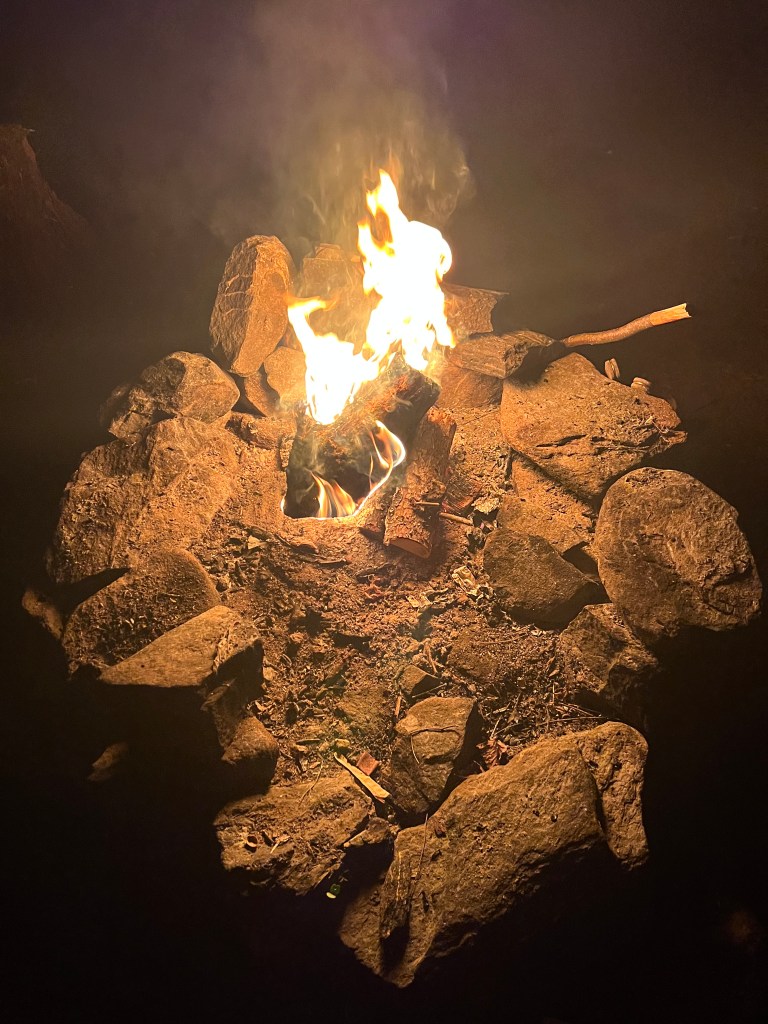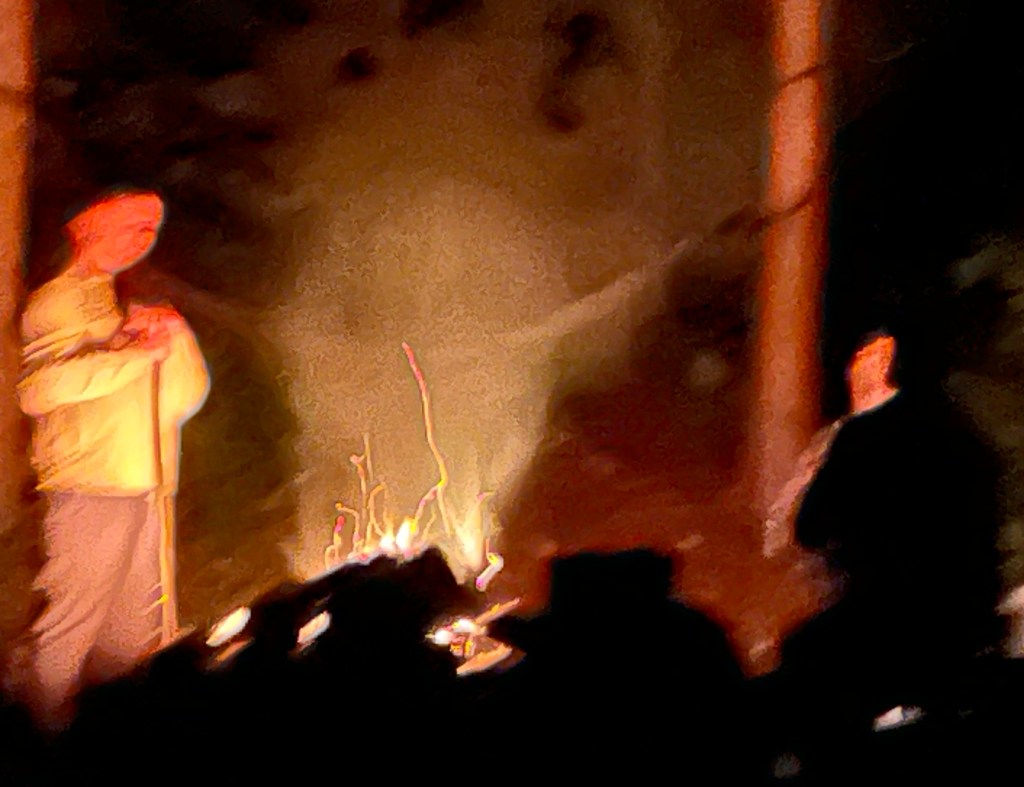
“By what authority are you doing these things ….?”
The chief priests and elders question Jesus’ authority.[1] They ask Jesus a question in order to trap him. Jesus answers not in the way they anticipated or desired, by asking a question himself.
In the Gospels, Jesus asks many more questions than he answers. Answering a question with a question was the norm. In the four Gospels of the New Testament Jesus is asked 183 questions of which he only directly answers three. How can they believe what Jesus says, especially if he doesn’t answer their questions directly? On what is his authority based? What is the nature of Jesus’ authority?
While I was attending the Lutheran World Federation (LWF) assembly meeting in Krakow Poland last month, I met Lutherans from all over the world. The LWF is a global community consisting of 150 member churches.
And I enjoyed informal conversations with other pastors, advisors and bishops from countries who will soon hold elections. For example, Poland, Argentina and India will be electing governments in the coming months with all of them teetering towards hard-line approaches.
Governments are not our only authorities in life. Parents, doctors, police officers, school teachers, by-law officers, pastors–these are other authorities in our lives. A couple of months ago when Pastor Jennifer Hoover facilitated conversations with the council and other members of our congregation about the church today, we reflected on our attitude towards authority, in general. Our response to anyone in authority is one factor that has changed since the 1960s.
On the one hand, there is this sense today of not listening nor considering any voice of authority. Earlier this year I read a contemporary young adult fiction book similar to the Harry Potter series, in which young students attended a special, magical school.[2]
But there were no teachers in this school, at least not in the traditional sense. Contrary to what we might expect, teachers were not embodied persons interacting with the students. Instead, the magical building itself was the teacher, thus removing people from the role of having authority. This novel reflected a current-day attitude toward authority — that we don’t easily accept the authority of others as we did a century ago.
On the other extreme, and especially under stress and anxiety, some yearn for an iron-fist rule. With the high cost of living these days and inflation rates soaring worldwide, people naturally knee-jerk towards seeking a strong voice of authority that will enforce strict rules, as if forcing everyone to follow the same rules and being of the same mind will make things better.
These varied approaches suggest to me that authority needs to be redefined for our time. And while a total disregard for any authority on the one hand and those strong voices in politics on the other may be tempting, what the world needs today is the strong voice of the Gospel of Jesus Christ.
On one of the days during the Lutheran World Federation Assembly in Poland, the entire delegation visited Auschwitz and Birkenau—the death camps of the Nazis. The experience of seeing the remains of the gas chambers and shooting walls was deeply impactful. Hearing the stories of survivors and seeing pictures of a few of the one million people who violently died in these death factories was humbling, to say the least.
One story has stayed with me, of Father Maximilian Kolbe. He was a Catholic priest, himself a prisoner at Auschwitz who sacrificed his life in place of another person chosen to die. Eventually succumbing to the brutal horrors of Auschwitz and Birkenau, Kolbe maintained his belief that even in the midst of hell, God is present in the smallest act of love for another. “Don’t ever forget to love” was his undying testimony of faith.[3]
Facing his own prosecutor, Jesus told Pilate in no uncertain terms that the reign of God does not reflect the world’s definition of authority and power. “My power is not of this world,” Jesus said.[4] So, on what is Jesus’ ‘kingdom’ grounded?
After we returned from Auschwitz, we received a special guest who addressed the Lutheran World Federation Assembly. One of the few living survivors of Auschwitz, Polish historian and journalist Marian Turski, urged the LWF Assembly “to combat hate speech and turn fear of strangers into empathy for the other.”[5]
His presence and words challenged and moved me. After all, he was speaking to a large group of Lutherans and a church which was complicit and identified with the German church of the 1930s and 40s aligned with Hitler.
But what really touched my heart was why he decided to come to speak to us at all on that day — September 16. A Jew, Turski confessed that he debated whether he should join us on the first day of the Jewish new year, Rosh Hashanah. Normally he would have considered going to the synagogue to participate in the prayers and celebration there among his own.
And who were we to him – the other, the representatives of those who were his enemy eighty years ago? But, after speaking with his wife that morning, he decided to break the rules of his religion in order to meet with us. It was more important for him to follow the rule of love. “God is love,” our scriptures claim.[6] And God is our authority.
The Gospel reading today includes Jesus’ teaching on authority—the second part of the reading when he talks about two brothers who do opposite things; one doesn’t do what he says he’ll do, and the other does what he says he won’t do.
In the end, the action is more important. The critical measure is not what you say, but what you do. Any expressed belief, intention or doctrine means little if it is not paired with a behaviour and action that communicates a heart of love.
Compassion is the unique characteristic of true spiritual authority.[7] A compassion modelled by Jesus, by Maximilian Kolbe and Marian Turski. Compassion for others who are different from us. Compassion that results in loving action.
Celebrating Rosh Hashanah, Jews dip apples in honey to symbolize the hope for a sweet year to come. Turski invited the Lutheran Assembly to do the same later that day. It was to be a sign of the hope we all share that despite all the hellish, fearful, violent, divisive things going on all around us in the world today, God is present in acts of love for others outside our circles. Wherever love is practised between people, there God is. That is our sweet hope.
At lunch following Turski’s speech, we found plates of sliced apples with honey on all the tables in the dining hall. It was one of many cherished meals shared with others who were different from me, during my time abroad. God comes to us in the stranger who shows us love.
[1] Matthew 21:23-32
[2] Naomi Novik. A Deadly Education: A Novel (The Scholomance Book 1). New York: Del Rey, 2020.
[3] “Love in the Midst of Hate” Theology of the Heart – Life of the Saints
[4] John 18:36
[5] Marian Turski addresses LWF Assembly 2023
[6] 1 John 4:7-21
[7] Richard Rohr, “With Compassion We Change Sides” Compassion (Daily Meditations: www.cac.org, 22 September 2023)


